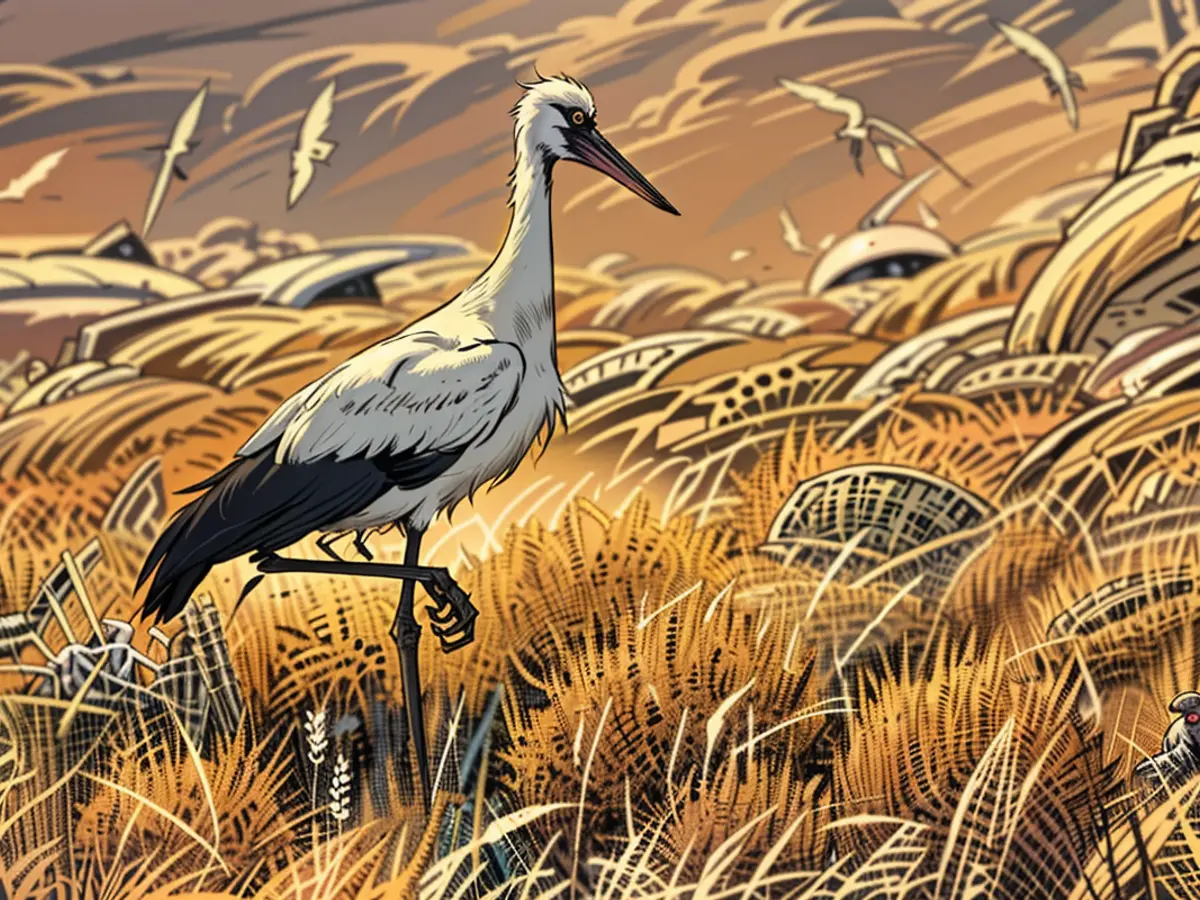- Abundance of Edible Snails Leads to a Fruitful Year for Storks
Positive Scenario for Storks: The climate and availability of food in North Rhine-Westphalia have been favorable for storks this year. Multiple stork families have successfully hatched chicks, with five pairs in a rural Wesel district raising four young each, as per Peter Malzbender, head of the Nabu district association Wesel. Approximately 30 stork families were spotted on Bislicher Island, a nature reserve near Xanten on the Rhine. According to Malzbender, the adequate food supply and suitable weather conditions have contributed to this success.
The preliminary numbers for the state-wide stork count in North Rhine-Westphalia are yet to be made public, but the Nabu state association in Düsseldorf predicts an impressive figure. Last year, 784 breeding pairs were recorded in the state, setting a new record for the most breeding pairs in NRW, as stated by Nabu. The primary breeding areas are the Minden-Lübbecke and Wesel districts, but storks are also found in numerous other locations.
Contrasting the scenario from the early 1990s, storks were on the brink of extinction in North Rhine-Westphalia at that time, with only three pairs residing in the state. The wading bird, able to grow up to 1.10 meters, was threatened and still remains on the red list. However, stork numbers have seen a significant rise over the years.
Diverse Diet: Storks are not picky eaters, as Malzbender points out. Their diet includes rats, mice, frogs, earthworms, insects, and snails, which they catch with their long, red beak. In this humid summer, many snails were a part of their meal, even with their shells, according to Malzbender. Storks benefit from nature reserves, prefer flat water, and manage to find food even on mown meadows.
The young birds are the first to migrate to their winter quarters in Africa, but an increasing number of storks are opting to stay back during milder winters, gaining an advantage over other storks when breeding places become available in spring.
The Rhine, serving as a vital habitat, is home to numerous stork families in the nature reserve near Xanten. During this humid summer, the abundance of snails in the Rhine area became a significant part of the storks' diverse diet.








